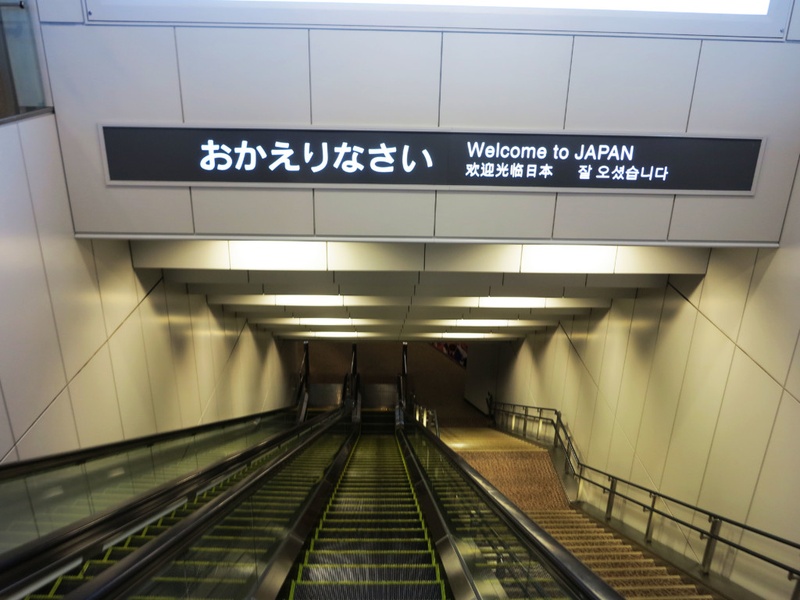The feeling of relief when I see the "Welcome Home" sign at Narita International Airport
For Japanese people living abroad, or immigrants, everyday life is like a long, never-ending journey. For most people, the journey ends when they return to their hometown, somewhere in their home country.
It's been more than 25 years since I started living in Brazil, but I still feel like I'm traveling somewhere.
For those who have no choice but to live abroad, or who have chosen to do so, the only time they can return to their home country is when they need to return temporarily.
So how do you end your "long journey"? At some point, you just have to make up your mind and convince yourself that "this is my second home." Or rather, when you can truly believe that, then your journey will finally be over.
If the feeling of walking on solid, firm ground is what it feels like to live in your hometown, then I think life as an immigrant feels like walking a long, wobbly tightrope between tall buildings.
Whenever I go back to Japan and see the "Welcome Home" sign above the escalator in front of the arrival gate at Narita International Airport, I always feel a sense of relief. It makes me feel like, "Ah, I'm finally putting my feet on the ground."
This feeling can only be understood by those who have spent more than two or three years abroad. It is when you have experienced the four seasons many times in a foreign land and can sense the atmosphere of "Ah, this season has come again." You can only acquire this feeling of "endless travel" and "tightrope walking" if you live until you feel it is part of your daily life.
I think Japanese people who experience that become "foreigners."
For Japanese people in Japan, "foreigners" generally refer to people "other than themselves."
For example, the number of foreign workers in Japan is increasing all around us, and Japanese industries have reached a point where they cannot function without foreigners, such as convenience store and izakaya staff, auto parts factories, dried fish factories, bento factories, etc. Even if some of them have decided to live in Japan permanently, they probably do not think of them as fellow residents or citizens of Japan.
However, for Japanese immigrants like us who have made foreign countries our "second home," we are the "foreigners."
The question of whether or not one is a foreigner is not an attribute that one is born with. It is a question of "post-accrual attributes" that are directly linked to whether or not one is living in one's hometown or home country, and whether or not one is an immigrant.
In other words, anyone can be a "foreigner."
In a globalized society, the movement of people and goods is inevitable. Anyone who moves becomes a "foreigner." This is, so to speak, a downfall of a globalized society.
3,800 comments on a column published on Yahoo! News
The feeling I wrote at the beginning of this article may not be fully understood by Japanese people in Japan - this is the impression I got while reading over 3,800 comments I received when I published my recent column, " Reporter's Column: Brazilians in Japan Should Also Be Given 100,000 Yen, " on Yahoo! News.
The number of pageviews (page hits) was about 1.95 million, the highest ever recorded for a Japanese-language newspaper in Brazil. On the other side of the world, a mini-comic with a circulation of 15,000 copies, which is a flop if the wind blows, reached 130 times as many readers on the Internet, even at its maximum instantaneous speed.
The gist of the column was that, "From the standpoint of Japanese people living in Brazil and the Japanese Brazilian community, Brazilians who have decided to live in Japan permanently should naturally be considered Japanese citizens. We would like to see the 100,000 yen cash payment provided."
After the Lehman Shock, the majority of Brazilians who remained in Japan were "permanent residents" who decided to live in Japan permanently, and with permanent residency, they send their children to Japanese schools to raise them. I intended to mainly advocate support for the permanent residents. If there was room, I also intended to support those who are staying in Japan on visas that give them the right to work, even if they do not have permanent residency. However, it seems that the columnist's words were not clear enough, and quite a few people misunderstood as saying, "Give support to illegal workers and those without residence permits as well," and wrote critical comments.
To begin with, the columnist is opposed to the fact that Japan is expanding its half-hearted introduction of foreign workers without implementing a proper immigration policy.
I was relieved to hear that many of the comments I received told me that "as long as you are registered in the Basic Resident Register and fulfill your tax obligations, it seems that you can receive the benefit even if you are not Japanese."
The Basic Resident Registration Act is a public register in which each local government creates a resident card for each household of all residents. In 2012, the Immigration Control Act and other related laws related to foreign residents were amended to include foreign residents in the register. In other words, I was relieved to find out that there would be no problem because the Brazilians who are permanent residents in Japan are registered.
One Yahoo comment read, "Even if they have permanent residency, if they don't pay taxes and are only looking for welfare, there is no need to protect them. I think such people should rather be allowed to return to their own country. If we are to talk about human rights, then that is up to each country. As Japanese citizens, I think it is only natural that we help people who pay taxes and make a living." I slapped my knee and said, "That's right!"
Brazil provides financial support to foreigners and residents abroad
Incidentally, foreigners can also apply for the 600 reais subsidy (for three months) for non-regular employees that was introduced in Brazil as a measure to combat the current coronavirus shock.1
There is no mention of permanent residency, but a taxpayer identification number (CPF, Japan's My Number) is required, so you must be a "taxpayer."
However, only a handful of Japanese people living in Brazil receive this benefit. The condition for eligibility is that the monthly income per person in the family must be less than 522 reais (about 10,000 yen), and there are almost no Japanese people who live below that amount.
In fact, the Japanese people who were originally living that kind of life have probably gone home long ago.
Interestingly, Brazilians living abroad can also receive the 600 reals, although those who have submitted a "permanent departure application" (declaração de saída definitiva) to the National Tax Agency are no longer entitled to receive it. This only applies to those who lead a double life, paying taxes both in Brazil and abroad.2
This means that Brazilians who are permanent residents in Japan will likely have applied to leave the country permanently, and therefore will not be entitled to receive the aid.
Notes:
1. " Brazil's aging population is on the rise. What will we receive as an emerging market? " (globo.com, April 15, 2020).
2. " Brazil's exterior building is facing a direct threat from emerging markets; we need to understand the requirements " ( Geral , April 20, 2020)
*This article is reprinted from the Nikkei Shimbun (May 5, 2020).
© 2020 Masayuki Fukasawa / Nikkey Shimbun







